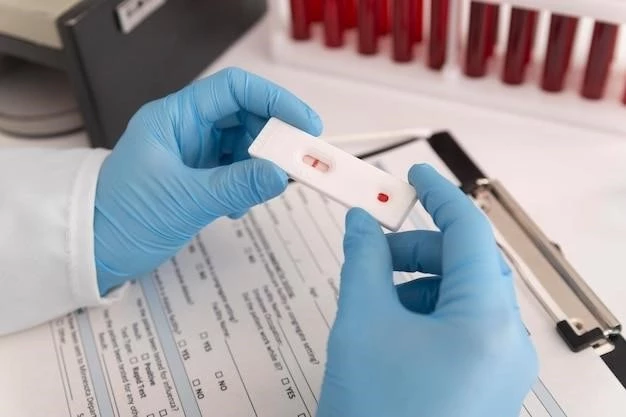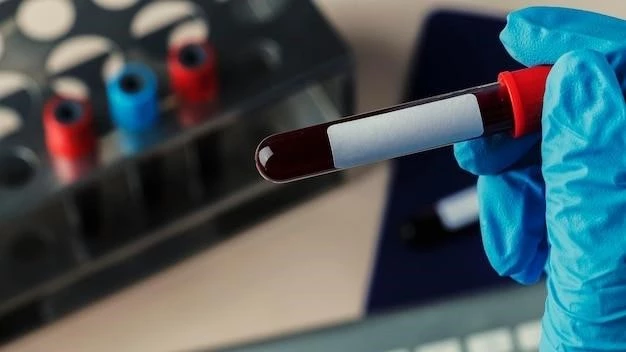Overview of Autoimmune Hemolytic Anemia
Autoimmune Hemolytic Anemia is a complex condition with various causes, diagnostic methods, treatments, symptoms, complications, and management strategies.
Causes of Autoimmune Hemolytic Anemia
Autoimmune Hemolytic Anemia can be triggered by a range of factors, including underlying autoimmune disorders such as systemic lupus erythematosus (SLE) and rheumatoid arthritis. Other causes may include certain medications like penicillin, infections such as Epstein-Barr virus or mycoplasma pneumoniae, and exposure to chemicals or toxins. In some cases, the exact cause remains unknown, termed idiopathic autoimmune hemolytic anemia. Understanding these diverse causes is crucial in diagnosing and effectively managing this condition.
Diagnosis and Treatment of Autoimmune Hemolytic Anemia
Accurate diagnosis is key using blood tests, antibody studies, and bone marrow examination. Treatment involves immunosuppressive therapy and blood transfusions.
Diagnostic Methods for Autoimmune Hemolytic Anemia
Diagnosis of Autoimmune Hemolytic Anemia involves comprehensive blood tests to assess hemoglobin levels, blood smear examination to identify abnormal red blood cells, direct antiglobulin test (Coombs test) to detect antibodies coating red blood cells, and bone marrow examination to confirm the presence of autoimmune destruction. These diagnostic methods are critical in determining the appropriate treatment approach and managing the condition effectively.
Treatment Options for Autoimmune Hemolytic Anemia
Treatment for Autoimmune Hemolytic Anemia typically involves immunosuppressive therapy, which may include corticosteroids, immunosuppressant drugs, and monoclonal antibodies. In severe cases, splenectomy (surgical removal of the spleen) may be considered. Blood transfusions and erythropoietin therapy can also be utilized to manage anemia. The choice of treatment depends on the severity of the condition, patient’s overall health, and response to initial therapies. Close monitoring and collaboration with healthcare providers are essential for successful management and improved outcomes.
Symptoms and Complications of Autoimmune Hemolytic Anemia
Common symptoms include fatigue, pale skin, jaundice, and dark urine. Complications may include heart problems and increased risk of infections.
Common Symptoms of Autoimmune Hemolytic Anemia
Common symptoms of Autoimmune Hemolytic Anemia include fatigue, weakness, palpitations, pale skin, shortness of breath, jaundice, dark urine, and an enlarged spleen. These symptoms result from the accelerated destruction of red blood cells and decreased oxygen-carrying capacity of the blood; Monitoring and addressing these symptoms are crucial in managing the condition effectively and improving the quality of life for individuals with autoimmune hemolytic anemia.
Potential Complications Associated with Autoimmune Hemolytic Anemia
Potential complications of Autoimmune Hemolytic Anemia include increased risk of blood clots, heart problems such as arrhythmias and heart failure, susceptibility to infections due to decreased immunity, and severe anemia leading to organ damage. Timely diagnosis, appropriate treatment, and regular monitoring are essential to prevent and manage these complications effectively, improving the overall outcomes and quality of life for individuals with autoimmune hemolytic anemia.
Management Strategies for Autoimmune Hemolytic Anemia
The management of Autoimmune Hemolytic Anemia involves a multi-faceted approach aimed at controlling symptoms, preventing complications, and improving quality of life. This includes immunosuppressive therapy, blood transfusions, splenectomy in select cases, and close monitoring of hemoglobin levels. Lifestyle modifications such as a balanced diet and regular exercise can also play a supportive role. Collaborating with healthcare providers and following recommended treatment plans are essential for optimal management of autoimmune hemolytic anemia.

Autoimmune Hemolytic Anemia in Children⁚ A Comprehensive Overview
Autoimmune Hemolytic Anemia in children presents unique challenges due to their developing immune systems. Diagnosis in children often requires specialized tests and careful monitoring. Treatment may involve similar approaches as in adults, with adjustments for pediatric dosages and considerations. It is crucial to address the impact on growth and development, as well as emotional well-being in pediatric patients. Collaborative care involving pediatric hematologists, pediatricians, and parents is essential for the comprehensive management of autoimmune hemolytic anemia in children.
Latest Research on Autoimmune Hemolytic Anemia
Ongoing research in autoimmune hemolytic anemia focuses on elucidating the underlying mechanisms of autoimmune reactions, identifying novel biomarkers for early diagnosis, and developing targeted therapies with reduced side effects. Advances in immunology and genetics are shaping the understanding of this complex disorder, paving the way for personalized treatment strategies. Clinical trials are exploring innovative approaches such as monoclonal antibodies and gene therapy. Collaboration between researchers, clinicians, and patients is essential to translate research findings into improved outcomes for individuals affected by autoimmune hemolytic anemia.
Autoimmune Hemolytic Anemia and its Impact on Quality of Life
Autoimmune Hemolytic Anemia can significantly impact the quality of life due to chronic fatigue, physical limitations, and emotional distress. Managing symptoms, preventing complications, and maintaining regular medical follow-ups are crucial for improving overall well-being. Support from healthcare providers, support groups, and family members plays a vital role in coping with the challenges posed by this condition. Prioritizing self-care, stress management, and adherence to treatment plans are key factors in enhancing the quality of life for individuals living with autoimmune hemolytic anemia.
Prevention and Lifestyle Recommendations for Autoimmune Hemolytic Anemia
Preventing autoimmune hemolytic anemia involves managing underlying autoimmune conditions, avoiding triggers such as certain medications and infections, and maintaining a healthy lifestyle. Lifestyle recommendations include a balanced diet rich in iron and folic acid, regular exercise to promote circulation, adequate hydration, stress management techniques, and sufficient rest. It is essential to follow up with healthcare providers regularly, adhere to prescribed medications, and promptly report any new symptoms. Educating oneself about the condition and proactive self-care measures are key to preventing exacerbations and promoting overall well-being.
